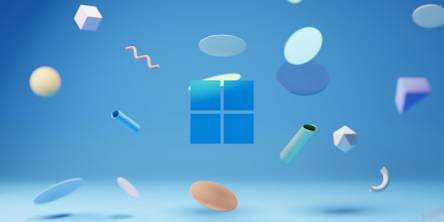How Cloud, AI & IOT Shall Shape the Future of Technology?

Since 2006, the cloud is developing rapidly. It has played an integral role in the transformation of many businesses. From upscaling and downscaling, flexibility, reliability, scalability, and versatility to enhancing the savings of the organizations, cloud computing is only gaining immense importance and adoption. The benefits of cloud computing have persuaded more and more businesses to make the cloud an integral part of their organization and a main ingredient of an effective IT strategy.
AI, another newsmaker is just like an iceberg that has a lot hidden than visible. It has fuelled cloud computing with its tremendous power by making machines act like real humans. AI has helped to analyse, identify and learn patterns for making real-time decisions.
As Internet and networks expand, how can we forget IoT? IoT is all about the exchanging data from multiple devices via a multitude of data points which are gathered in a plethora of ways and on diverse platforms. With the cloud bar constantly being raised, and continuous innovation in IoT & AI, data has become the core of modern-day applications.
IOT Expansion & Cloud Capacity
The number of IoT devices will hit 20.8 billion by 2020 & there will be 2.5 IoT devices per person on the entire planet - Gartner
A plethora of information is being collected from devices due to IoT. This results in more and more data being poured into the cloud. It is the ability of cloud that has facilitated the enormous expansion of IoT. Also, sending all the data to the cloud to be stored until analysis can be performed lowers the risk to the company considerably.
Fog / Edge computing and AI
Technology is getting better at making machines better. The race to the cloud will only gather pace as technology matures. From improving search rankings to automated investing and digital assistants AI and machine learning are slowly becoming a part of our lives in various ways. Slowly these machines shall possess human-level intelligence. The idea of edge computing is sparked to enhance the storage and performance of data instead of simply pulling raw data and sending it off to the cloud. Doing so reduces the need to transfer profuse volume of data to the cloud while diminishing the transmission delays and data transfer expenses. In a nutshell, Fog computing transfers data to a shorter distance from the sensors themselves to a local gateway device which helps in swift execution of the necessary processes to the IoT device. The time taken for this is less as compared to cloud computing. AI involves the process of analysing data to find patterns using some of the common techniques like deep machine learning. Application of multi-layered rules depending on the complexity of individual situations, to trigger an action is also encompassed in AI. Some of the core AI capabilities include reasoning and decision-making which need an edge and centralized systems to collaborate. However, these edge agents have some degree of autonomy to make rebooking decisions wherein, some agents have more decision making autonomy than others.
AI and IoT to Influence Data Management in 2018
As per James Kobielus, an analyst at Wikibon, machine learning, AI and IoT will collaborate to alter the shape of data management and application development, in 2018.
IoT, Cloud and Big Data come Together
IoT is still blooming. But the data that is derived from IoT will work as a fuel for cloud and driver of petabyte scale explosion. Knowing this the leading cloud organizations & data companies are cashing in IoT so that the data can be routed to their cloud engine without much effort.
Building Digital-First Infrastructure
As the global Cloud computing services market is expected to grow from $23.3 billion in 2016 to reach $68.4 billion in 2020 and 90 percent of organisations will adopt hybrid infrastructure management capabilities, market research firm Gartner predicted on Wednesday.
With an estimated global population of over 6 billion by 2045, the cloud shall provide the digital infrastructure of these future cities. Smart homes, drones, elevators, driverless cars - all will be secure and superiorly managed to owe to the aptitude of the cloud to amass and scrutinise data.
Even businesses of all sizes will require digital infrastructure to support their business operations. Cloud will also support AI and other such emerging technologies and help them to get adapted to newer platforms like mobiles. Cloud will also pave the way to change information and communications technology from being just a support system into a fabrication system.
IoT, AI, and cloud are three sides of the same triangle and together that have tremendous potential to push the applications into limitless capabilities in future.
Similar Articles
Scaling a business is thrilling. It's also terrifying. You gain ten new customers. Then a hundred. Then everything gets... wobbly. The email system crashes.
Setting up a colony on Mars means we need to think hard about how everyone will talk to each other. This isn't just about chatting; it's about getting work done, staying safe, and keeping things running smoothly.
The way we work isn't just changing, it's been completely turned on its head. Remember when the pandemic forced everyone home?
You know that sinking feeling when a project starts strong, then suddenly your client goes dark? Three weeks in, excitement morphs into eerie quiet. Revisions stack up with zero context. Every budget discussion makes your stomach tighten.
The cloud computing market is long past the point of simple migration. It is now defined by the practical application of advanced intelligence and distributed infrastructure.
In the rapidly shifting landscape of digital advertising, entrepreneurs are constantly seeking more reliable ways to connect with their customers across a fragmented web.
Agile and data driven companies have a clear competitive advantage. At least in the modern market. This shift has led to the adoption of specialized software, such as CRM and various SaaS apps.
Discover how expert book printing solutions transform manuscripts into high-quality printed books. Learn about the process, materials, customization options, eco-friendly practices, and the future of modern book printing.
Architectural 3D rendering price guide covering costs, factors, AI impact, and typical pricing for residential and commercial exterior and interior renders.










